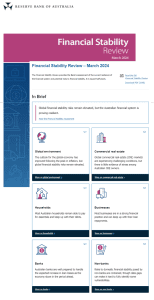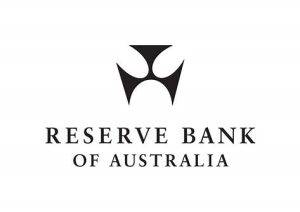Central Counterparties Help, But Do Not Assure Financial Stability…
Central counterparties (CCPs) play a pivotal role in the post-crisis reforms of derivative markets. By stepping into the middle of trades, a CCP becomes “the buyer to every seller and seller to every buyer,” thereby reducing bilateral counterparty risk in the financial market. Policymakers recognized the growing importance of CCPs and introduced regulations to ensure CCP resilience to financial shocks. In a recent note, we highlight some commonly held misconceptions and overly-complacent conclusions about CCPs’ ability to stabilize financial markets, especially in the presence of systemic shocks.
Since the reform, CCPs have become an indispensable part of the infrastructure for derivative trading. Approximately 75 percent of swaps are now cleared through clearinghouses, compared with just 15 percent before the 2007-2009 financial crisis. Such an increase in the concentration of trading exposure led regulators and market participants to worry about the resilience of CCPs to systemic shocks. The first regulatory reaction was to designate the largest CCPs as systemically important financial market utilities (SIFMUs). This was followed by stress tests designed to evaluate their robustness and identify vulnerabilities. Furthermore, a default waterfall—a cascade of risk-mutualization backstops— is being developed to minimize the risk and the impact of a CCP member’s failure.
Despite their critical role in ensuring trades, regulators may become over-reliant on CCPs as a bulwark to safeguard the financial system. The current framework has been successful in reducing bilateral counterparty risk and securing CCPs’ ability to clear securities trading. Yet, still missing is a full assessment of the consequences of CCP operations on the functioning of other segments of the financial ecosystem, apart from their impact on derivatives trading.
Strengthening CCPs is a necessary but hardly sufficient condition to ensure financial system stability. For instance, as CCP members become more interconnected among themselves and with other parts of the financial system, policymakers should evaluate the potential for CCP margin requirements to be pro-cyclical. Policies that impose added responsibilities to CCPs may tax their ability to raise additional capital or liquidity during stressed market conditions. It is vital that in implementing new policies, assessments include how changes in CCP and market behavior affect third parties. Indeed, the new policies may induce undesirable and destabilizing system-wide behaviors.
Despite the potential for CCPs to ensure that derivative markets function smoothly, vigilant oversight by the public sector over the efficacy of other systemically important aspects of CCPs may still be needed to ensure the continuity of trading activities. At a minimum, regulators and supervisors need to monitor market liquidity conditions, ensure effective price discovery, and stand ready to support illiquid financial intermediaries if CCPs and markets threaten to seize.

